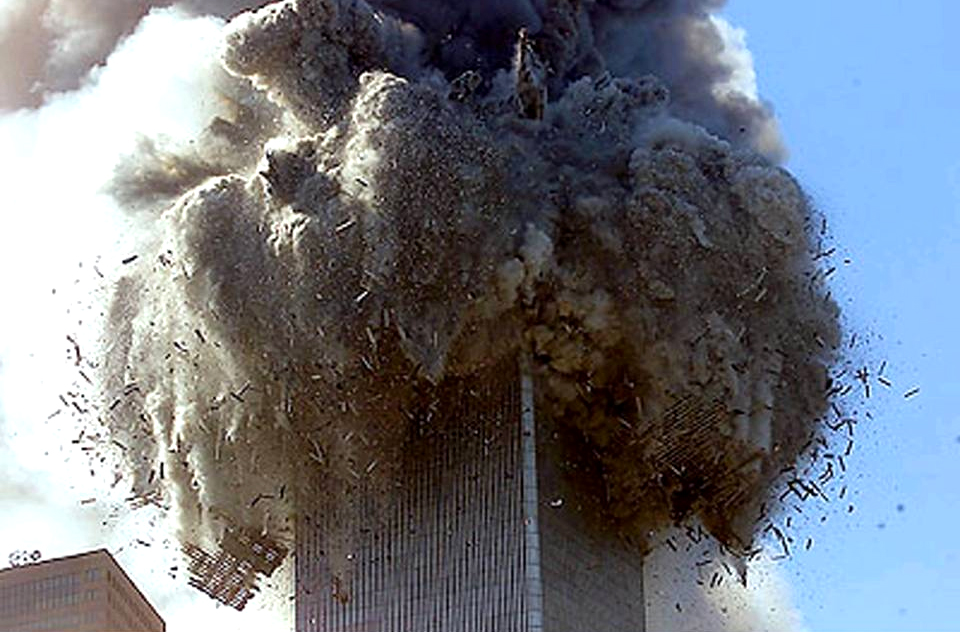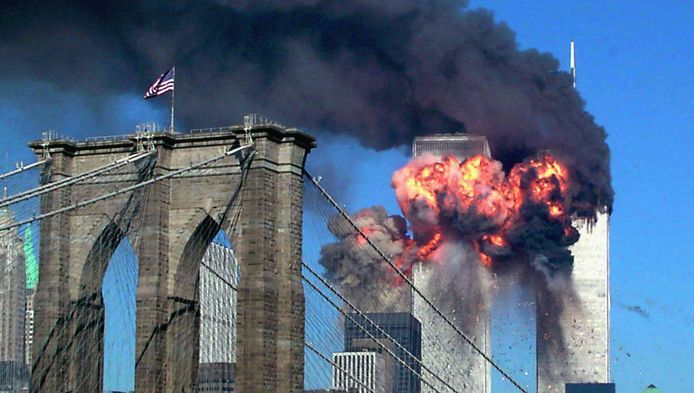Introduction
This week, I saw a Dutch theater presentation on Youtube called ‘KomPlott’, which was about conspiracy theories linked with the attacks of 9/11. The presenter George van Houts tried to answer different questions that were raised after the attacks, and explained different reasons why we should question what happened on 9/11. After watching this 2-hour presentation, I caught myself believing what he was saying, even though somewhere in the back of my head I knew this is a conspiracy theory. It made me question: why am I still sensitive towards a conspiracy theory like this, even though I know it is not validated information? For this reason, I would like to discuss in my blog why many people believe in conspiracy theories, and what the consequences are. Are you ready to find out the truth?
Finding out the truth
Recently, conspiracy theories receive a lot more attention than in the past. Especially since the Internet became a mass medium, boundaries between the fringe and the mainstream erode (Barkun, 2016). This made it possible for computers and networked communication to make information better accessible, including conspiracy theories (Caplan & Boyd, 2016). Moreover, people nowadays are being more skeptical about the authorities (Barkun, 2016).
For these reasons, it is important to know what conspiracy theories mean exactly. According to Barkun (2016), conspiracy theories are modes of thinking that give the impression that events are interrelated with each other. To put it in other words, conspiracy theorists believe that (elite) groups hold back important information without most people being aware of it. Conspiracy theorists claim to have special access to this special knowledge or ‘the truth’ (Barkun, 2016).
Collapse or explosion?
But first, what kind of conspiracy theories about the attacks on 9/11 do people believe? Let’s look at an example, which was presented in the theater presentation of “KomPlott”. According to George van Houts, this example specifically raised questions about how the Twin Towers collapsed. In the image below you see how the North Building of the twin towers collapsed.

In the presentation, George brings up a physics teacher named David Chandler. According to Chandler, if a building such as the North Tower (of the twin towers) would collapse, it should collapse vertically because of gravity. However, in the case of the North Tower, it collapsed in the shape of a flower (see image). To put it in other words, it looks like the building has collapsed from the inside out, and according to George and Chandler, that would be impossible if ‘only’ a plain drilled into the building. Based on this theory, a lot of people thought that the building must have had placed explosives inside the towers, making them believe that the 9/11 attacks were an inside job (Simensen, 2011).
In contrast to this, Simensen (2011), published a study that explains why the World Trade Center collapsed. According to Simensen (2011), ”the molten aluminum streamed down to the lower floors and came into contact with water from the sprinkler system, which caused devastating explosions” (p. 45). So you would think a study like this puts down the fuss about this specific theory right? Why is this not the case though?
Who beliefs in conspiracy theories anyway?
When looking at conspiracy theories about the attacks on 9/11, we could ask ourselves: who are the people that believe in those conspiracy theories? A study by Stempel, Hargrove, and Stempel (2007), investigated media use and the belief in three conspiracy theories about the attacks of 9/11. It was found that members of less powerful groups (e.g. racial minorities), consumers with low levels of media involvement, and consumers of less legitimate media were more likely to believe at least one of the conspiracies that were presented. On the other hand, consumers of legitimate media (e.g. daily newspapers) were less likely to believe at least one of the conspiracies that were presented.
The reason behind believing in conspiracy theories
But why are people still sensitive towards conspiracy theories, for example about 9/11, even though they may know the information is not validated by official institutions? Read and Do (2015), indicated several reasons which could explain why people tend to accept conspiracy theories. One of those reasons is that people who are in a situation that is out of their control (such as the attacks on 9/11), tend to find patterns and causal relationships that do not exist. This is also related to confirmation bias, which means that people tend to embrace information that supports what they believe in, whereas they would reject information that does not embrace their beliefs (Chamber, 2017).
Conclusion
I think we could argue that it is extremely difficult for common people to know which information that is presented on the Internet or social media, is validated or truthful. Especially in the digital revolution that we are in, more and more information is presented without gatekeepers being able to set boundaries between validated and falsified information (Barkun, 2016). Furthermore, based on my own experience, it is very easy to look up information that confirms conspiracy theories about 9/11, whereas it is quite difficult to find scientific literature that falsifies information that conspiracy theorists distribute online. So why is there so much information available about conspiracy theories, but not about scientific, and validated research?
I’m not sure if we can still stop the evolution of the distribution of conspiracy theories, but the least we can do is helping those people who are sensitive towards believing in conspiracy theories. If we could teach more people the difference between validated and falsified information, and what the value is of validated information, maybe – even some people – would be less sensitive towards believing in conspiracy theories. Therefore, I would like to argue that we should create more awareness about the danger of conspiracy theories, and the difference between validated and falsified information. If we could already make a difference for some people, I feel like it would be at least a step in the right direction. What do you think?
Reference list:
Barkun, M. (2016). Conspiracy theories as stigmatized knowledge. Diogenes, 1-7
Caplan, R., & Boyd, D. (2016). Mediation, automation, power. Paper written for workshop Who controls the public sphere in an era of algorithms?, Data & Society, New York
Chambers, C. (2017). The 7 deadly sins of psychology. A manifesto for reforming the culture of scientific practice (Chapter 1: The sin of bias). Princeton, NJ: Princeton University Press
KomPlot Voorstelling | George van Houts. (2019, April 9). [Video file]. Retrieved from https://www.youtube.com/watch?v=Kmd9e0aMkGk
Read, K. W., & Do, T. C. (2015). Why do some people believe in conspiracy theories?. Scientific American Mind.
Ryan, K. (2013, September 7). Why the NIST Report on the World Trade Center Towers is False. Retrieved from https://www.foreignpolicyjournal.com/2013/09/07/why-the-nist-report-on-the-world-trade-center-towers-is-false/
Simensen, C. J. (2011). Why the World Trade Center collapsed. Aluminium International Today, 23(3), 45.
Stempel, C., Hargrove, T., & Stempel III, G. H. (2007). Media use, social structure, and belief in 9/11 conspiracy theories. Journalism & Mass Communication Quarterly, 84(2), 353-372.

Hi,
Nice to read your view on conspiracy theories. I, completely, agree with your statement. I think it would be great to teach people about misinformation which can be found on the internet. Maybe it will not help all of them, but it will help some of them. If people are educated more on the topic of misinformation, it would make it easier for them to know where to look when reading about conspiracy theories. How they could fact-check these theories and therefore, form their own opinion. This would be hard to do, but at least it would help some people because they are just so unaware.
LikeGeliked door 1 persoon
Interesting blog post! I also liked how you addressed 9/11 related conspiracy theories, as I think these are very notorious. I agree with your personal opinion on conspiracy theories and the importance of educating those who are sensitive to believing in conspiracy theories. I think that now that these theories circulate, it might be difficult to control this circulation but we can work on how people handle information and look at sources.
LikeGeliked door 1 persoon
Nice and interesting topic! I totally agree with your statement. I feel that so many people are not aware of the danger of these conspiracy theories. At some point, it could make people more violent which we should of course prevent at all times. Therefore, people should be more educated about this topic. I don’t really think we learn knowledge about this in for example highschool. At least I don’t remember learning about this? haha. That should be the first step for me in order to create more awareness about this topic!
LikeGeliked door 1 persoon
Hi Julia, I find this topic really interesting and I have watched many films and documentaries about 9/11. The main points are always the same but in some documentaries there was speculation about other possible causes. Just like “KomPlott”. Therefore, I think it is very important to educate people about how to recognize a conspiracy theory and also about the importance of fact-checking. They can start with this in highschool. At this age, children are very involved with social media and possibly also watching documentaries on Netflix. It important to start with this early, so children learn to think and judge critically from a young age.
LikeLike
Hi,
Nice subject and blogpost! I totally agree with you that there should be more awareness about the danger of conspiracy theories, and the difference between validated and falsified information. I think that in this time with the algorithms and social media it is really important to teach to fact-check news before believing it. Or just make them more aware of the fact that there is a lot of misinformation. Besides, I think it is important to teach people about how the algorithms works and that social media companies create those filter bubbles.
LikeLike
Hi,
Nice topic for your blog, nice to read something else than just corona. I do agree with your statement that we should create more awareness about the danger of conspiracy theories, and the difference between validated and falsified information. I think the effect that a conspiracy theorie can be very big and people will believe what they are reading. I think these theories can be very dangerous if they go viral and people really start to believe it. More attention to prevent this would be good for everyone. validated information plays an important role in this, as does the transparency of the information.
LikeLike
Definitely agree with you! You comment about not much information about scientific and validated research being available really made me think. It is definitely kind of strange that most of the scientific literature is only available after paying or when you have an university account. I guess this makes it easier for false information to thrive, because it is almost impossible to fact check it with good scientific research for most people. Like you said, awareness is important, but I think it is also important to give people the right tools to be able to guard themselves against conspiracy theories. So a possible solution would also be to spread scientific research for free.
LikeLike
Nice to read your rethoric. While I understand that scientific studies require more work and time to create in comparison to conspiray theories, I do agree that it should be more accessible for everyone. Apart from making it free – as Marlot mentioned – it should also be translated in layman’s terms so that they can be understood by everyone. What you often see is that someone deliberately misinterprets a study so that other believe what they say, while keeping the reference of the study to seem more reliable. If scientific findings become easier to understand for people with a lower educational level, a lot of this trouble would indeed be avoided!
LikeLike
*rhetoric
LikeLike